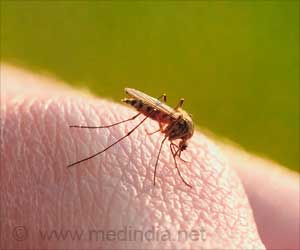
"Dengue fever during pregnancy could cause premature births and also low weight newborns," says Archana Dhawan Bajaj, gynecologist, obstetrician and fertility expert at The Nurture Clinic.
"If you are in the second or third trimester, preterm could be expected. High grade fever may lead to preterm labour, contractions and preterm birth. Hence close monitoring under expert supervision is a must," Bajaj said.
In view of the recent upsurge in dengue cases in and around the national capital, these suggestions call for extra caution by pregnant women.
The national capital and its adjoining areas have recorded 5,982 cases of dengue till September 26, while the toll stands at 17, according to official records.
The number of dengue cases recorded so far in New Delhi are the highest since 2010.
Advertisement
According to the experts, dengue can cause complications during pregnancy such as high bleeding or loss of blood during delivery or within the first 24 hours following childbirth, transmission of the disease from mother to the unborn, and abnormal quantities of protein in the urine which may indicate damage to the kidneys, among others.
Advertisement
"If you happen to get infected by dengue or are having a doubt, then the primary step is to take a blood test and proper treatment under the supervision of the doctor with complete rest to avoid serious complications," Pai suggested.
Dengue virus is the most rapidly spreading virus transmitted by mosquitoes and there are no vaccines to prevent the infection.
The only available control measures are those that reduce the number of mosquitoes and preventing mosquito bites.
When infected, early recognition and prompt supportive treatment can substantially lower the risk of medical complications and death.
Sudden high fever, severe headache, pain behind the eyes which worsens with eye movement, bone, muscle and joint pains, loss of taste and appetite, even bleeding from nose and gums which may be mild, red patches or a measles-like rash over chest and upper limbs can be symptoms of dengue infection, Bajaj said.
For those pregnant women who are already having dengue fever the doctors underlined the need for adequate fluid intake as being hydrated is essential for maintaining embryonic fluid level.
"Take painkillers and antibiotics only as per the prescription of the doctor. Do not take any over the counter medicines, especially aspirin and related drugs, as they may not be safe during pregnancy," Bajaj said.
Even though dengue has been known to be present in India since the 1940s, it is only in the past few years that there is growing recognition of the magnitude of the problem.
A recent study, published in the journal PLOS Neglected Tropical Diseases, found that a large number of dengue cases in India go unreported.
"Our results show that the extent of the problem has been vastly underestimated," the study's leader Isabel Rodriguez-Barraquer from Johns Hopkins Bloomberg School of Public Health in Maryland, US, noted.
Source-IANS














